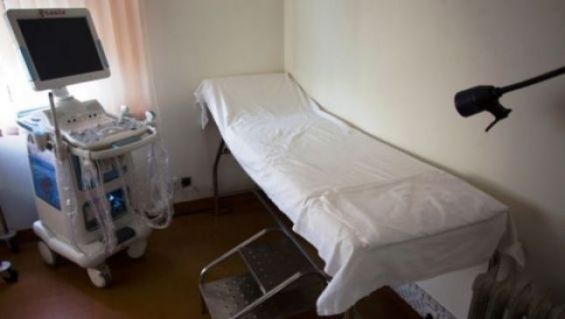As Morocco is battling against the novel coronavirus, doctors working in hospitals are deemed to be the frontliners in this war. But what about doctors with their own offices and private sector clinics? To find out about the situation during the outbreak, Yabiladi randomly contacted five general practitioners and five specialized doctors in Casablanca, Rabat, Marrakech, Agadir, Tangier and Fez. Meanwhile, we contacted ten clinics in six Moroccan cities to carry out the same survey.
In Casablanca, 6 out of 10 doctors answered our calls : Two general practitioners and four specialists. The first two said they are still keeping the doors of their offices open for patients all while keeping the same schedules. As for specialists, the office of Nadia Zinoun, a gynecologist, told Yabiladi that she had reduced her working hours, receiving only women with emergencies.
The office of Naima Baaddy, a cardiologist, indicates that her medical practice only receives patients for cardiovascular emergencies. For her part, Naila Midafi, a neurologist, has restricted her work hours (10 am-1 pm) and receives, like other fellow doctors, only urgent cases. Finally, the last specialist who answered our calls in Casablanca, a dermatologist, said that he kept «a continuous schedule».
Reduced work hourse and closed offices
In Rabat, five doctors picked up the phone : two general practitioners and three specialists (a gynecologist, an ophthalmologist and a cardiologist). They have all said that they only receive urgent cases and rather check on their patients through remote consultations over the phone or the internet. «We work until 6 pm and prefer telephone consultations. We only receive urgent cases and, in case of symptoms of the coronavirus, we call 141 (Ministry of Health's hotline to provide assistance to suspected Covid-19 cases, ed.)», Anas Lakhdar, general practitioner, told Yabiladi.
Hicham Bensouda, an ophthalmologist and Hassan Elboury, a cardiologist, also said that they only treat emergencies. «I work a lot over the phone», said the first doctor, while the second added that «general consultations are postponed to maintain social distancing».
In Marrakech, only one general practitioner answered the phone. «I try to see all the patients, not just the urgent cases. On the other hand, I receive them on a drop by drop basis to make sure the waiting room doesn't get crowded», Laila Essabiri explains, adding that she «wears a surgical mask during consultations».
In Agadir, three general practitioners replied to us. They have all said that they have kept their usual work hours and try to receive patients whose states of health require consultation.
In Tangier, only one general practitioner replied, simply stating that he received his usual patients. Like in Agadir, no specialist could be reached over the phone. In Fez, none of the five general practitioners we contacted replied. Only Mohamed Boughaleb, a cardiologist, answered saying that he receives urgent cases while ensuring that his medical practice does not get crowded.
Clinics and the coronavirus
A few days later, Yabiladi tried to reach ten clinics in the same cities to determine whether they are still operating in the same way during the outbreak. Pretending that we had an emergency, we tried to figure out whether the emergency services of these clinics would agree to take us during this coronavirus period, as several people on social media claimed they were not taken care of by said services.
Out of 60 clinics, 22 agreed to receive us in their emergency department, 9 answered but told us that they could not have us and 29 did not answer on the phone.
In Casablanca, five clinics responded favorably to our request and five others did not respond at all. The clinics who responded are the Ain Borja clinic, Al Massira, Jerrada Oasis, Franceville and Mers Sultan. In Rabat, three clinics also agreed to receive us (Amal Rajae clinic, Souissi and United Nations dental clinic), while three others did not pick up the phone.
For those who refused to provide their services, the excuses were as follows : the first clinic told us that the cardiologist was absent (in that case, we had pretended to have been suffering from a heart problem); the second clinic simply told us that it could not receive us in its emergency department without providing any further explanations, the third clinic said that it did not have an emergency service on-site and the fourth clinic declared it had to be closed due to the containment measures.
In Marrakech, only three clinics agreed to provide emergency treatment for a heart problem (Le Marrakech clinic, Errahma and Polyclinique du Sud); six others did not respond and one stated that it did not have an emergency service on-site.
In Agadir, two clinics responded favorably to our request (Souss and Tifaoute clinics), one of which accepted after making sure, through a short questionnaire, that we did not have any of the commonly-known coronavirus symptoms.
Four other clinics did not respond and, finally, of the last four, two told us that their facilities were closed due to the coronavirus (with one of them stating that its staff were not present, in accordance with containment measures).
Meanwhile, in Tangier, we could not reach most of the clinics we contacted : six clinics did not answer, while the Assalam, Achifaa, Marshan and Bennis clinics did. Only one of these clinics asked to know whether we had any of the coronavirus symptoms.
In Fez, five clinics agreed to receive us in their emergency department, and five others did not respond. The five medical facilities that accepted our request were the Atlas Polyclinic, Ar-Razi, the Annakhil Polyclinic, the Taiba clinic and the Agdal clinic.
Responding to the current situation
After publishing the results of our survey, the National Council of Physicians in Morocco (CNOM) threatened to sanction doctors closing their offices without a valid reason. Speaking to Yabiladi, the head of the body said that disciplinary measures will be taken against the medical practictionners in question.
However, days later, a letter sent to the head of government Saadeddine El Othmani by the president of the National Council of the Order of Physicians of Morocco (CNOM), Mohammadin Boubekri called for financial aid and tax exemptions during the state of health emergency.
«It is unfortunate to have to announce to you that, during these difficult times, doctors from the private sector find themselves trapped between duty and the law which obliges them to keep their clinics and their offices open to the public despite the declining attendance», the body wrote in a letter.
The body urged the authorities in said letter to «find effective solutions so that clinics and medical offices benefit from tax exemptions and facilities, as well as funds from the National Social Security Fund (CNSS, ed.)».
The same letter was denounced, Wednesday, by the syndicate of the private sector doctors. In a communiqué sent to Yabiladi, the body revealed that private sector doctors have never urged CNOM to voice such demands.





 chargement...
chargement...













